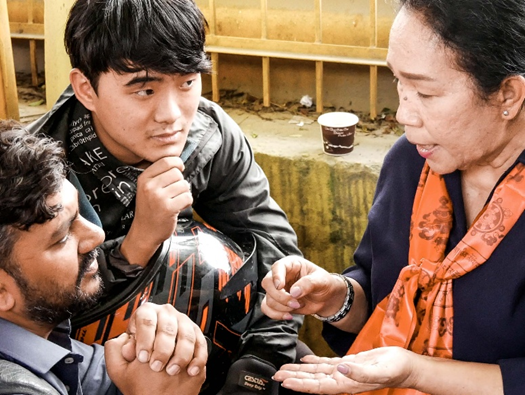Labour rights: In total over 66.000 people, of which 31% women and 13% under 35 years, were reached by services from the Nepali trade unions to promote labour standards.
Social Security: Over 133.000 workers (35% women and 44% under 35 years) were reached by the services of the trade unions to ensure coverage of workers in the contributory Social Security Fund.
Vocational Training: 68 people (88% women and 60% below 35 years) received vocational skill training on tailoring, embroidery and self-employment from NTUC.
These activities from 2024 and others since 2022 contributed to the following impact:
Better coverage: More than 560 thousand workers have enrolled in the contributory social security fund which trade unions helped set up.
Better work: Nearly 800.000 workers have better working conditions: public teachers were re-instated, legal assistance led to factories improving, increased leave and festival allowances, self-organized welfare funds, better OHS policies and committees established, especially for tea plantation workers. 140 workers also improved their income after the vocational skill training.
- The Integrated SP framework and Leave No One Behind, which aim to provide the 28 million Nepali citizens with better and more coherent coverage;
- Shock Responsive Social Protection guidelines, which provides additional rights in case of shocks to the current 3,6 million Social Security Assistance beneficiaries;
- Inclusion of informal, self-employed and migrant workers in the contributory social security fund, providing extra rights to 13 million workers and their families;
- Other amendments of the SSF extended coverage and increased amounts to spouses, children education and healthcare.



















